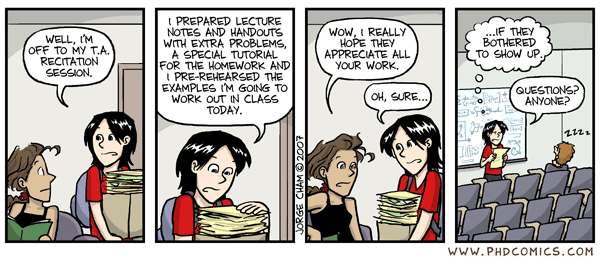As the old saying goes, “you can lead a horse to water, but you can’t make it drink.”
It’s been a while since my last post; I’m starting to understand the troubles that one can face, when balancing a part-time PhD, full-time job, and still trying to have a social life/keep sane during the whole thing. There are ebbs and flows; some weeks it’s almost all work, no PhD; others, it’s the other way around.
These past couple weeks seem to have been more work than PhD; some servers and systems that I had developed, in the process of a server reshuffle, decided to stop working on me, right before an important demo (as these things tend to do; they can’t fail on a normal day where it doesn’t matter, certainly not). After that debacle, it was a matter of getting things back online, and with some slight modifications and improvements thrown in along the way, I managed to get everything running again (as well as become an expert in installing PostGIS on Linux).
Anyway, I probably could’ve identified if/when these things weren’t working if people were actually using them. Further to that, the hurry to get things back online was moreso for my own purposes -their uptake has been rather… slow/non-existent. I make systems and analyse them because I think that’s interesting: there’s a problem and I create a system that provides the solution. Does it help people? Does it make life easier? Does it make business run more efficiently? I can’t really answer those questions if no one’s using the things I made.
I’m reminded of a project I had at previous place of employment where I was to make a toolkit to help flood modellers do their work more quickly. It seemed that they were getting bogged down in the details of GIS, rather than applying their domain specific knowledge to the stats the GIS was to output. So, after analysing their workflow, I figured out what could be automated, created the necessary tools, and provided bespoke training/documentation on them. Let’s just say it didn’t go over very well; the project was requested by upper management who weren’t pleased with the amount of time needed to do the analyses, the team were upset about how things were handled because they felt their expertise was being marginalised/belittled, and my team were caught in the middle of this, just trying to help.
My guess is that solution has ended up in a code graveyard somewhere, which is a shame. I make things to make people’s lives easier, whether they’re aware of it or not (usually the latter), but I don’t mind – I learn some great things along the way and always work towards improvement. I just hope that for this current project, uptake of the systems improves, not only for management’s sake to get the outputs it needs, but for the team’s sake – manually taking care of this at the end of the project (while trying to produce all the other outputs needed [PhDs, Vivas, publications, etc.]) would be a nightmare (which we’re trying to avoid).
